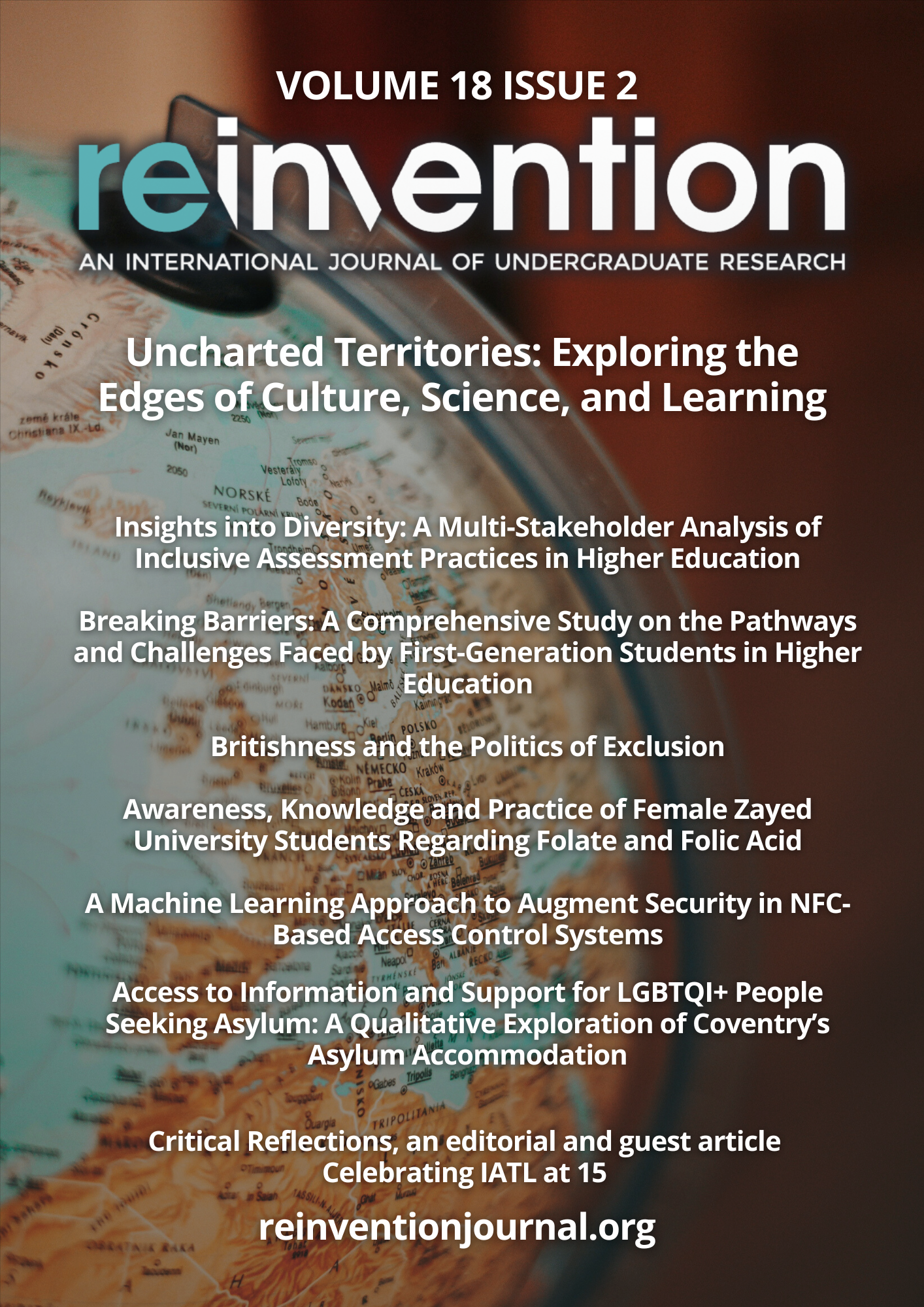Abstract
Adequate and timely folic acid intake can prevent the development of most Neural Tube Defects (NTDs) during pregnancy. However, up-to-date information on how much childbearing-age women are informed regarding this is limited in the United Arab Emirates. This study evaluated awareness and knowledge level of folate and folic acid (FA), along with FA supplement intake among female university students. It also assessed major demographic factors associated with knowledge of folate and with FA supplement usage, as well as examining participants’ risk level of inadequate folate intake. Of 239 female Zayed university students who completed the questionnaire, 63.2 per cent were aware of folate, and 44.8 per cent had good knowledge, but most (77 per cent) never took FA supplements consistently although the majority of the participants (38.5 per cent) were at higher risk of inadequate folate intake. Health science specialisation, history of folate deficiency or anaemia, and married or divorced marital status were associated with knowledge of folate/FA. Married/divorced marital status and history of folate deficiency or anaemia were also strongly correlated with FA supplement intake. However, pregnancy experience was not correlated with any of them. These results indicate a substantial gap in young women’s knowledge and FA supplementation. Therefore, effective education programmes are required to increase knowledge and promote folate-rich food consumption and FA intake.

This work is licensed under a Creative Commons Attribution 4.0 International License.
Copyright (c) 2025 Bontu Yismawu Melaku, Professor Fatme Al Anouti, Dr. Ala Al Rajabi, Professor Lynne Alexandra Kennedy


